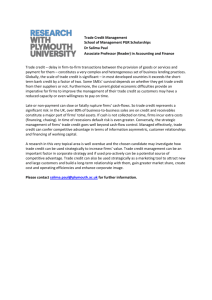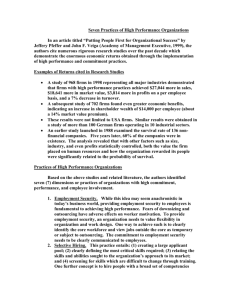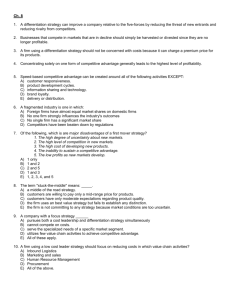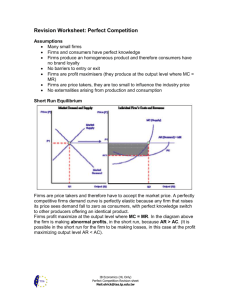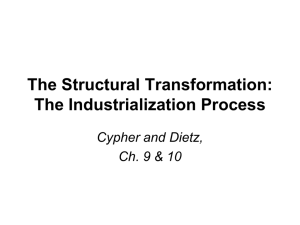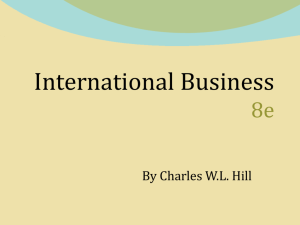Import Substitution Industrialization
advertisement
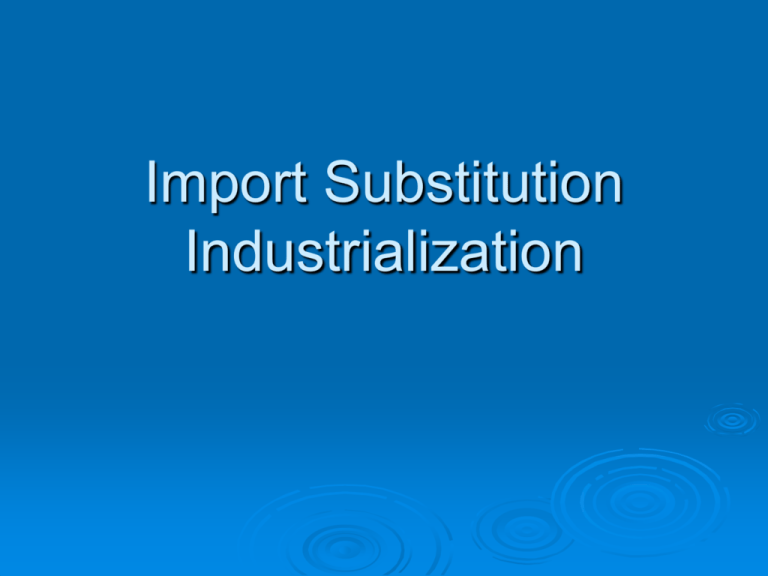
Import Substitution Industrialization Premises: • Development should be achieved by looking inward • Promote and develop backward and forward linkages • The State is the primary actor of development • Growth of domestic private firms and the state owned firms was secured by high import barriers (protectionism) • Transnationals would be welcome in strategic sectors to provide technology Industrial Policy Form state owned firms Form mixed economic enterprises Require government purchases from national firms Require joint firms to establish joint ventures Pressure foreign firms to increase domestic content International Instruments Tariffs on final goods Quotas on imports Exchange rate overvaluation Exchange rationing Import licences Fiscal and Monetary Policy Subsidies for cheap inputs such as electricity Subsidies for public transportation Tax breaks in production Preferential interest rates Accommodating monetary policy The Crisis of ISI Due to the limited size of the internal market in Latin America, the ISI became exhausted Exports halted because of the overvalued currency and non-competitive domestic firms Failed to create an enterprenurial class Foster the creation of inefficient economic institutions Agriculture was neglected Monetary policy led to inflation






